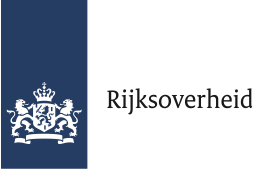Are you ready to make a difference in public health? We are looking for a motivated PhD candidate who is passionate about controlling infectious diseases using mathematical and computer models. If you want to influence public health strategies and contribute to important research, keep reading! In this role, you’ll work at the cutting edge of infectious disease control, helping to shape the future of public health in the Netherlands.
The PhD Project
This PhD project focuses on evaluating the effectiveness of various infection control measures, including non-pharmaceutical interventions (such as changes in behavior) and vaccination. The main objective is to investigate how different intervention strategies can prevent the introduction of infections, reduce transmission rates, and minimize severe health outcomes. Ultimately, we aim to help mitigate or control epidemics. To achieve this, we will utilize both mathematical models and real-world data to identify specific population groups that are at high risk for severe outcomes, those who drive the spread of infections, and those most likely to introduce new cases. Our goal is to determine how interventions can be optimally targeted and combined for maximum effectiveness. We will concentrate on identifying the general principles that will be applicable to future pandemics, using modelling and data analytics to test these principles.. Additionally, we will leverage extensive datasets collected during the COVID-19 pandemic in the Netherlands and other countries, as well as data from previous infectious disease outbreaks in the Netherlands.
Responsibilities
As a PhD student in this project, your responsibilities will include:
- Analyzing data on reported COVID-19 cases in the Netherlands to assess how control measures have affected the spatial spread of infections.
- Simulating the spread of infections through networks to determine the best use of interventions aimed at preventing the introduction of new cases, interrupting transmission in the general population, and protecting individuals at high risk for severe outcomes.
- You will be using various modelling approaches , such as network models and matrix models, alongside data analysis to identify key subgroups within the population—based on factors like location and age—who are driving the epidemic, are at high risk of infection, and where control measures can have a greater impact.
- Collaborating with a multidisciplinary team of epidemiologists, statisticians, and mathematical modelers.
- Publishing your findings in peer-reviewed journals and presenting your work at international conferences.
- Writing a PhD thesis that integrates your analyses and captures the lessons learned about the effectiveness of infection control measures.
The department
You will be part of the Unit for Infectious Disease Modelling, which consists of about 15 international researchers specializing in communicable diseases. Our team collaborates with experts in epidemiology, bacteriology, virology, immunology, health economics and other fields both within and outside of RIVM. The department is part of the Centre for Epidemiology and Surveillance (EPI) at RIVM.
How to apply
Do you want to help fight infectious diseases? We would love to hear from you! If you have any questions or want more information about this PhD, feel free to contact Jacco Wallinga at +31611326151.
The first round of interviews will take place in week 49 and the second round of interviews in week 50. We expect to complete the employment conditions interview this year.
